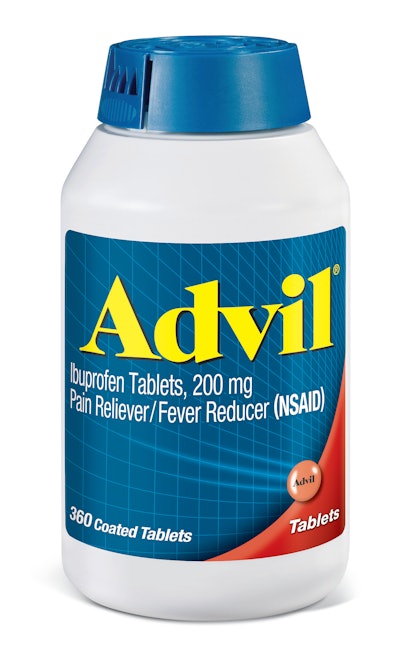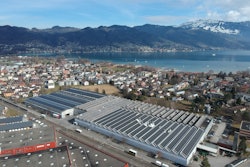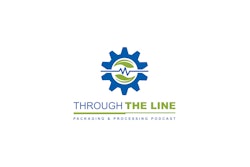It’s no secret that consumers are demanding environmentally friendly products and packaging, and this includes over-the-counter (OTC) medications. In April, GSK Consumer Healthcare announced its commitment to reducing the plastic in over 80 million Advil bottles by 20% (annual volume), which the company reports will result in a reduction of nearly 500,000 pounds of plastic in the environment annually.
The updated bottles have already begun hitting retail shelves in the U.S. The Advil portfolio will have transitioned by 2022 online and on retail shelves nationwide, with the exception of Advil “easy open” bottles. “The first focus has been to do this in the U.S. because that's where we have our biggest Advil business and where we can create the biggest impact in terms of saving plastic,” says Sarah McDonald, vice president of sustainability at GSK Consumer Healthcare. “So that's been the first focus, and then we’ll move onwards from there to other geographies.”
Healthcare Packaging spoke with McDonald (virtually) to discuss the project, goals, and more.
Resin technology
GSK says the initiative is a first-of-its-kind sustainable plastic technology for OTC medicines. This new barrier resin technology reduces the amount of resin required to mold and craft the high-density polyethylene (HDPE) bottles, while maintaining the same barrier protection properties. HDPE is recyclable in the #2 stream in the U.S.
This is accomplished via a nucleating agent added into the resin itself—GSK worked with Dow and Milliken on the materials side and Alltrista Plastics on the component manufacturing side. “We have a bi-modal HDPE resin and by adding this agent, it allows us to reduce the quantity of plastic that we use to make the bottles while maintaining the same protective barrier qualities,” explains McDonald. “This means we don’t need a discreet barrier layer so it does not impact recyclability.”
This material change allows for a 20% reduction in material usage for HDPE bottles while maintaining all critical performance characteristics of the bottle. Alltrista molds bottles via compression blow forming (CBF)—GSK did not have to purchase new machinery. (CBF continuously extrudes plastic, cuts it into “clumps”, and transfers the clumps into compression cavities where they are pressed into preforms and stretch-blown into finished bottles.)
“The success of our reduction is a combination of materials and more accurate molding using CBF, which allows for even distribution of the remaining resin,” explains Edward Candelaria, technical lead for the project and director of packaging technology CH Americas at GSK. Unrelated to the resin change and CBF, GSK also implemented an 11% reduction in the weight of the caps (the process and materials remained the same).
McDonald says, “It required considerable testing to reach confidence that we were hitting the reduction we wanted and also the level of protection we needed. It also needed a lot of testing to make sure we were confident in passing regulatory requirements. It was about seven years of work behind the scenes together with our partners on the materials side and on the manufacturing molding side.”
“We're really pleased to get this on the market and proud of the work from our partners as well. We couldn't have achieved this without our partners, Dow, Milliken, and Alltrista. It was a team effort, and we’re very excited to see this coming through onto shelf because consumers more and more want products that use less plastic—they’re very conscious of their footprint and want plastics that are recyclable. There’s lots more to come, but we’re excited that it's coming through onto the shelf now in the U.S. in Advil's biggest market,” she notes.
Speaking of consumers, communicating sustainability improvements is key. “Initially because it's going to take some time for the change to flow through onto shelf, communication that's happening now and around Earth Day is digital,” she says. “So there is banner advertising on our partner retailers’ sites and communication on advil.com. Then as more of the reduced-plastic bottles flow through onto shelves we will then communicate in-store to highlight the change. Obviously we want to do that when there's a critical mass of the updated bottles on shelf in-store.”
Other future goals
The new sustainability goal set by Advil is part of GSK’s broader ambition to reduce its plastic footprint by 8,000 tonnes annually and for 100% of packaging to be recyclable or reusable where quality and safety permit.
The plastic and packaging focus is informed by requirements set by the Ellen Macarthur Foundation—GSK joined the Ellen MacArthur Network in 2020. “With the new technology available to us, we saw this as an opportunity to invest in the future of our brands and sustainability goals. Advil’s switch to the new 20% less plastic bottles uses a first-of-its-kind sustainable plastic technology for over-the-counter (OTC) medicines and kicks off a series of plastic reduction initiatives across the product portfolio at GSK,” says McDonald.
In addition to the 8,000 tonne reduction, they’re currently looking at how they can use this resin technology in other places. “A lot of development has gone into it and it's a really great technology given the three-way benefits: less plastic, same barrier properties, and no impact to recyclability,” she says. “So we’re looking at where we can use this in other places, as well as pursuing other ways of reducing or taking out plastic.”
Another focus for GSK is in boosting renewable energy usage, including on-site electricity generation where conditions allow. In 2020, GSK announced new environmental sustainability goals in both climate and nature, “aiming to have a net zero impact on climate and a net positive impact on nature by 2030,” per the company.
“By 2030 we aim to use 100% renewable electricity in our manufacturing sites, and there's a whole program happening in our supply chain towards that goal,” says McDonald. “In some sites, there is investment happening in renewable power generation directly on-site with installations of solar panels. But obviously that depends on the conditions on the site, whether there's space and whether there is sufficient sunshine to make the installation viable. A few developments of such sites include:
- GSK’s Cape Town on-site solar electricity generation went live in Feb. 2020.
- The company’s Nairobi on-site solar is scheduled to go live in May 2021.
- A site in Brazil will be going live toward the middle of 2021.
The company has a rolling program where they are investing in on-site capacity. Concurrently, there is work happening with purchase agreements to source renewable electricity where on-site generation isn’t possible.
As the Nov. 2020 announcement highlighted, GSK is making the connection between protecting and restoring the planet’s health, in order to protect and improve people’s health. McDonald concluded, “As a world leader in consumer healthcare, we at GSK are proud to transition Advil to a more environmentally friendly packaging, further supporting GSK’s commitment to sustainability.”

























